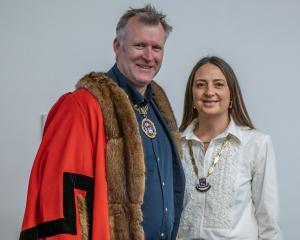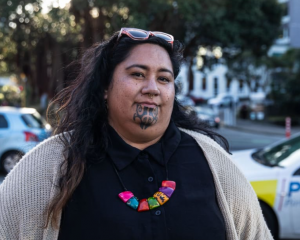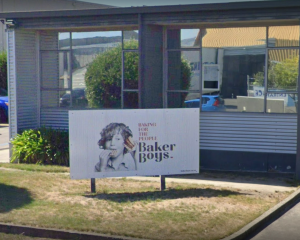
Dubbed "The Red Reverend", Russell Marshall brought dedication and commitment to his political career.
Born in Nelson in 1936, he was educated at Nelson College before training as a teacher and then as a Methodist minister.
He graduated from Trinity Methodist Theological College in 1960 and was a minister until 1971.
Mr Marshall married Barbara Watson in 1961, and they had three children together. His brother, Kerry, later married Barbara's sister.
He was a minister in Spreydon and Halswell (Christchurch), before moving to Masterton in 1967.
Although his father had been the secretary for the Nelson Labour Party, Mr Marshall did not join the party until he was 32 and was quickly spotted by the Labour leader, Norman Kirk.
Mr Marshall had just moved to Wanganui to teach at the local high school, but his time there was short-lived.
He was asked to stand for that seat in the 1972 election, which Labour won in a landslide victory.
A classical liberal and fierce defender of individual and human rights, as his career evolved Mr Marshall lost his Christian faith and became an atheist.
However, he credited his church background with shaping his political career and his stance on social issues such as homosexual law reform and apartheid.
His spent his first three years as a backbench MP on the education select committee. After Labour’s landslide defeat in 1975, Mr Marshall was given the significant promotion to education spokesman and was also chief opposition whip from 1978-80.
When then party leader Bill Rowling stepped down in 1983, Mr Marshall stood for the leadership but missed out to David Lange. When Mr Lange became prime minister the following year, Mr Marshall entered Cabinet as minister of education and as environment minister, overseeing the latter’s split into the conservation and environment ministries.
Mr Marshall was dissuaded from retiring in 1987 by Mr Lange, and after the election he became minister of both foreign affairs and Pacific Island affairs. It was a fraught three years to hold those portfolios, as the aftershocks from the Rainbow Warrior bombing reverberated, the country’s recently implemented nuclear-free policy continued to create issues, and the government in Fiji was deposed in a coup.
Mr Marshall had grown disillusioned with politics, saying that he found that much of what happened in Parliament was little more than a charade.
In 1990 he finally got his wish to be allowed to retire. Then prime minister Mike Moore had entered Parliament with Mr Marshall in 1972, and recalled his colleague had been full of ideals.
"I remind Russell that many of our ideals have been implemented. He should remember how radical and lonely it was to stand against French nuclear-testing, the Springbok tour, and nuclear ship visits to New Zealand. It was even lonely to support votes for 18-year-olds. In his old age, Russell will warm himself with the memories that he helped change New Zealand's opinion about those great issues of our age."
In his valedictory speech, Mr Marshall said serving as a constituent MP had been the most satisfying part of being in politics, although it had led to some unusual moments.
"Some years ago I was driving back to Wanganui. I was nearly home when a drunken driver turned right in front of me, we had the inevitable collision, and we all ended up going to hospital together. As we lay in the outpatient department waiting to be stitched up and repaired, and to have at least one of the company dried out or tested for his alcohol level, the passenger in the other car noticed with a great deal of pleasure that I was the driver of the car that had been hit. He said: `I'm glad it's you because I've been wanting to come and see you for ages’."
Mr Marshall also emphasised the value and importance of teachers and public servants, and recorded his conviction that New Zealand's trade and political future lay increasingly with the Pacific and the Pacific Islands.
"Of all the matters that give me hope for the future, nothing excites me more than the recognition, at last, in many ways, of the importance and richness of Maori history, language, and culture. Race relations in this country are not easy today. However, those attitudinal and structural changes — although such changes are a painful process — should not and cannot be avoided. We are slowly emerging the better and the wiser for them."
After leaving politics, Mr Marshall took up several public positions, including chair of the New Zealand National Commission for Unesco, and chair of Education New Zealand and the New Zealand branch of Polytechnics International.
He was a member of Commonwealth observer groups for Lesotho, Seychelles and South African elections, and a trustee of the Nelson Mandela Trust.
He became pro-chancellor and then chancellor of Victoria University and served as New Zealand's high commissioner to London from 2002-05.
Mr Marshall was awarded the Queen Elizabeth II Silver Jubilee Medal in 1977, the New Zealand 1990 Commemoration Medal in 1990, and became a Companion of the New Zealand Order of Merit in 2001.
Russell Marshall died on January 18 aged 88. — Mike Houlahan, RNZ












